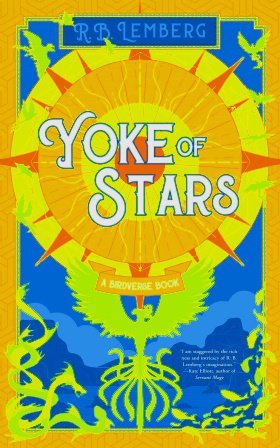I’m right here, Ulín wanted to say. Stop discussing me as if I’m nothing. But when she spoke, she tried to sound reasonable, adultlike. “The age difference is not a problem for me—you yourself have lovers both older and younger, and so does most everyone on the Coast.”
“He’s aiming for First Dreamer.” Her father spoke loud and fast. “This is a power play, he wants to rule, and my daughter will be a means to this end. You don’t see it because you are still a child, I will not allow this to go forward.”
If Ulín were to say, I am not a child, it would come out childish. She steeled herself. “I only want peace between our peoples.”
He said, “There already was peace between our peoples before this whole thing began!”
She wanted to stopper her ears and scream, but Kannar’s anger upset her beyond her ability to express. His three-deepname configuration of three single-syllable deepnames, the Warlord’s Triangle, made her father both irritable and incredibly powerful, but he had never before turned to Ulín in anger. She had been, until this moment, the smart and learned child, the beloved and beautiful child, the responsible, brilliant child with a future in governance once Kannar himself retired. She had not told him yet that she had no interest in governance.
Never before did his anger turn toward her, and now it felt like everything was falling apart. Did her father not love her? Did her father not want her to make her own choices?
“Do you love Laufkariar?” Sibeli asked Ulín.
“Yes,” she yelled, even though her parent did not yell. Ulín was louder even than her father. The small bird of doubt was shocked into silence. “I love him, I want to be with him, I am no different from anyone else on the Coast who is free to take lovers!”
“You want to be married, Ulín, according to the customs of his people,” her father said. “Even here, such a ceremony holds a heavy weight, and is rarely undertaken. Among the serpent people, even among other nameway people who do not share our Coastal ways, a marriage means so much, a marriage can mean forever, and you cannot expect me to support—”
The bird of doubt stirred again at his words, but then Sibeli said, “She is of age.”
“Newly of age,” Kannar roared. “As soon as she was of age, he was on the prowl—”
Sibeli continued, as calm as if those words weren’t spoken. “Ulín is not lesser than him, than anyone. She must have freedom to make her own decisions. If it is a mistake, then she will make it of her own free will. If later she walks away of her own free will, then we will be here.”
“I will not abide—my child gone from me for years—to live underwater, of all places—”
Pain shot through Ulín's head and her ears filled with noise. She ran out of the chamber, down the familiar, age-worn stone stairs. It felt good to be home, good to run, but more than anything else she wanted to be away from her parents, away from everyone, under the open sky. There, on the small secluded beach between jagged rocks, she paced among the stones, trying not to look out to the sea. Ulín did not want her lover or her father to find her -- she needed time to think -- but it was her brother who found her.
I touch Ulín’s hand again as she gulps for air. “Do you want to stop? A sip of tea?”
She shakes her head. “I must press on before I lose my courage.”
“Forgive me,” I say. “I understand.” I take another breath, and another, then tell her that I am ready to hear.
Tajer had just turned fourteen a few weeks ago. He was awkward and moody, and when she returned from the wave, the two of them barely exchanged greetings. There was something odd about her sibling, something strange and powerful and different, like a graceful but venomous snake, even though Ulín did not want to think of her own brother that way.
There was nothing graceful about him when he found her on the beach. He was bloodied, disheveled, in torn clothes, with bloodshot and bulging eyes. And his presence was powerful, off-kilter, suffocating, as if there was no more air.
Before she could think about it, or ask him anything, he yelled, “What in Bird’s name did you tell him about me?”
Guilt and defiance churned in her gut. “You always spied on me—on us—”
He laughed, a startling, ugly sound, more a scream than a laugh. “Did you tell him I’m jealous? Less than a man?”
I told him you could be ichidi. I did not mean anything by it. The serpents—they think differently about things—
She could have said that. Apologized. But she didn’t. Anger at her family churned in her, and guilt, and a fierce defiance. None of them honored her. All of them hated her choice; they all hated Laufkariar. Ulín yelled, “You were jealous—he is my betrothed—”
“You’re always the favorite—better than everyone—at least do not marry the Bird-plucked bastard, Ulín . . .” His voice shook. “At least that—or did you plan this? You planned this?”
Tajer swung his arms as he screamed, and Ulín could have retreated, but instead she pulled on her deepnames. One-syllable and two-syllables. She used to be so much stronger—
I shudder, and my fingers dig into my palms. The familiar name, the terrible spiraling of the story as it rushes inward toward darkness, ready to devour itself.
“Are you—” Ulín asks.
I do not want to hear. It is too much.
I promised to witness.
No, I want to. I want to witness.

























